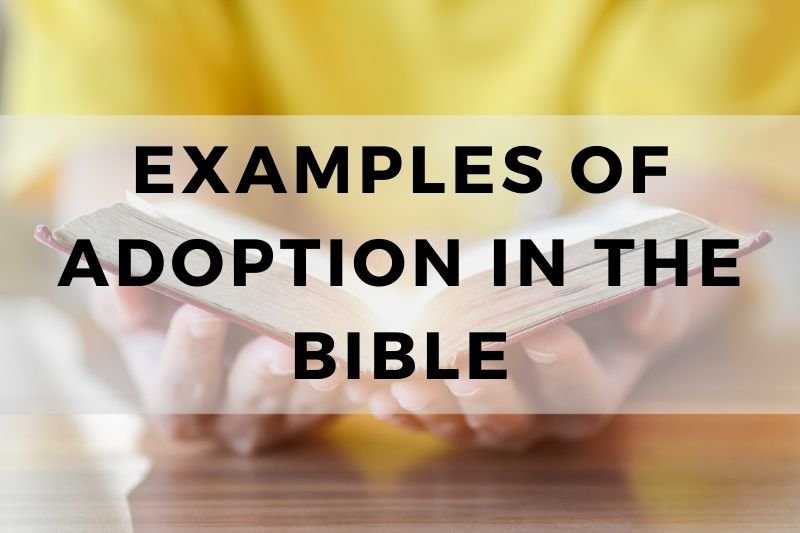
In the Bible, adoption is a concept that is not only mentioned, but also exemplified through various individuals and groups. This article will explore five examples of adoption in the Bible, shedding light on the significance and impact of this practice in biblical times.
By examining the stories of Moses, Esther, Jesus, Ephraim and Manasseh, and believers in Christ, we can gain a deeper understanding of the spiritual and relational implications of adoption as portrayed in the Scriptures. Let’s delve into these examples to uncover the rich tapestry of adoption in the Bible.
5 Examples of Adoption in the Bible
#1. Moses
Moses was adopted by Pharaoh’s daughter after being placed in a basket in the Nile River. This act of adoption not only saved Moses’ life but also positioned him to lead the Israelites out of Egypt. Exodus 2:10 states, “And the child grew, and she brought him to Pharaoh’s daughter, and he became her son.” Moses’ adoption by Pharaoh’s daughter was a pivotal moment in his life, shaping his destiny and ultimately leading to his role as a significant figure in the history of the Israelites.
#2. Esther
Esther was adopted by her cousin Mordecai after her parents died. Through this adoption, Esther became queen and played a crucial role in saving the Jewish people from destruction. Esther 2:7 mentions, “He was bringing up Hadassah, that is Esther, the daughter of his uncle, for she had neither father nor mother.” Esther’s adoption by Mordecai not only provided her with a new family but also set the stage for her to become a powerful and influential figure in the biblical narrative.
#3. Jesus
Jesus, the Son of God, was adopted by Joseph, who raised Him as his own son. This act of adoption fulfilled prophecy and allowed Jesus to be part of the lineage of David. Matthew 1:21-23 reveals, “She will bear a son, and you shall call his name Jesus, for he will save his people from their sins.” Jesus’ adoption by Joseph highlights the importance of family and lineage in the biblical narrative, emphasizing Jesus’ connection to the lineage of David and the fulfillment of prophecies regarding the Messiah.
#4. Ephraim and Manasseh
Jacob adopted Joseph’s sons, Ephraim and Manasseh, as his own, blessing them and giving them equal inheritance among his sons. Genesis 48:5 states, “And now your two sons, who were born to you in the land of Egypt before I came to you in Egypt, are mine.” Jacob’s adoption of Ephraim and Manasseh demonstrates the significance of adoption in biblical times, as well as the importance of family ties and blessings passed down through generations.
#5. Believers in Christ
Through faith in Christ, believers are adopted into God’s family as His children. Galatians 4:4-7 explains, “But when the fullness of time had come, God sent forth his Son, born of woman, born under the law, to redeem those who were under the law, so that we might receive adoption as sons.” The concept of adoption in the Bible extends beyond earthly relationships to spiritual adoption into God’s family, highlighting the transformative power of faith and the unconditional love of God for His children.
Closing Thoughts
The examples of adoption in the Bible serve as powerful reminders of the ways in which adoption can shape lives, fulfill prophecies, and establish important family connections. From Moses and Esther to Jesus and believers in Christ, adoption plays a significant role in the biblical narrative, illustrating themes of redemption, family ties, and divine providence.
As believers reflect on these examples, they are encouraged to see adoption not only as a legal process but also as a spiritual reality that brings them into God’s family and secures their place as His beloved children.
